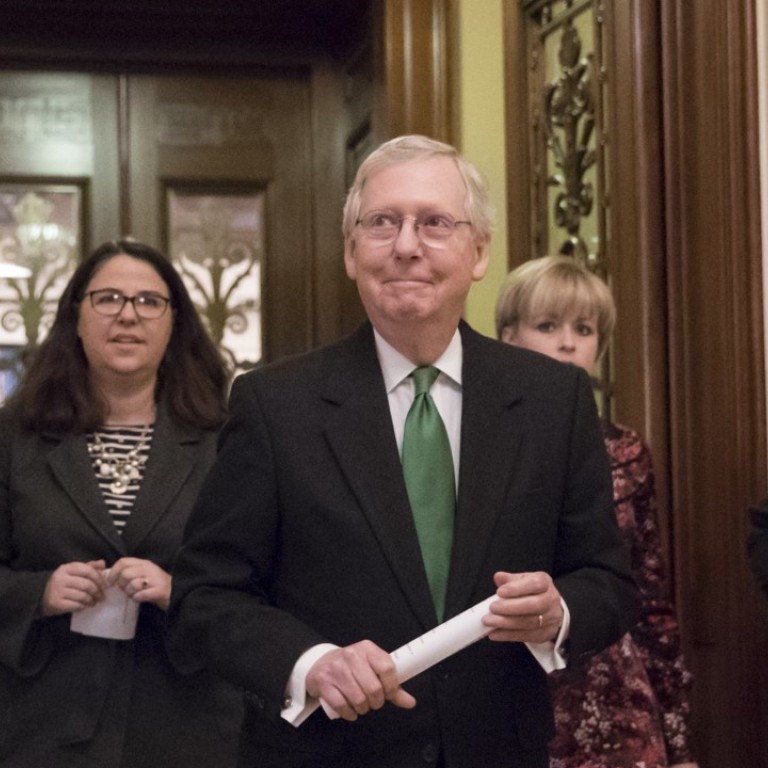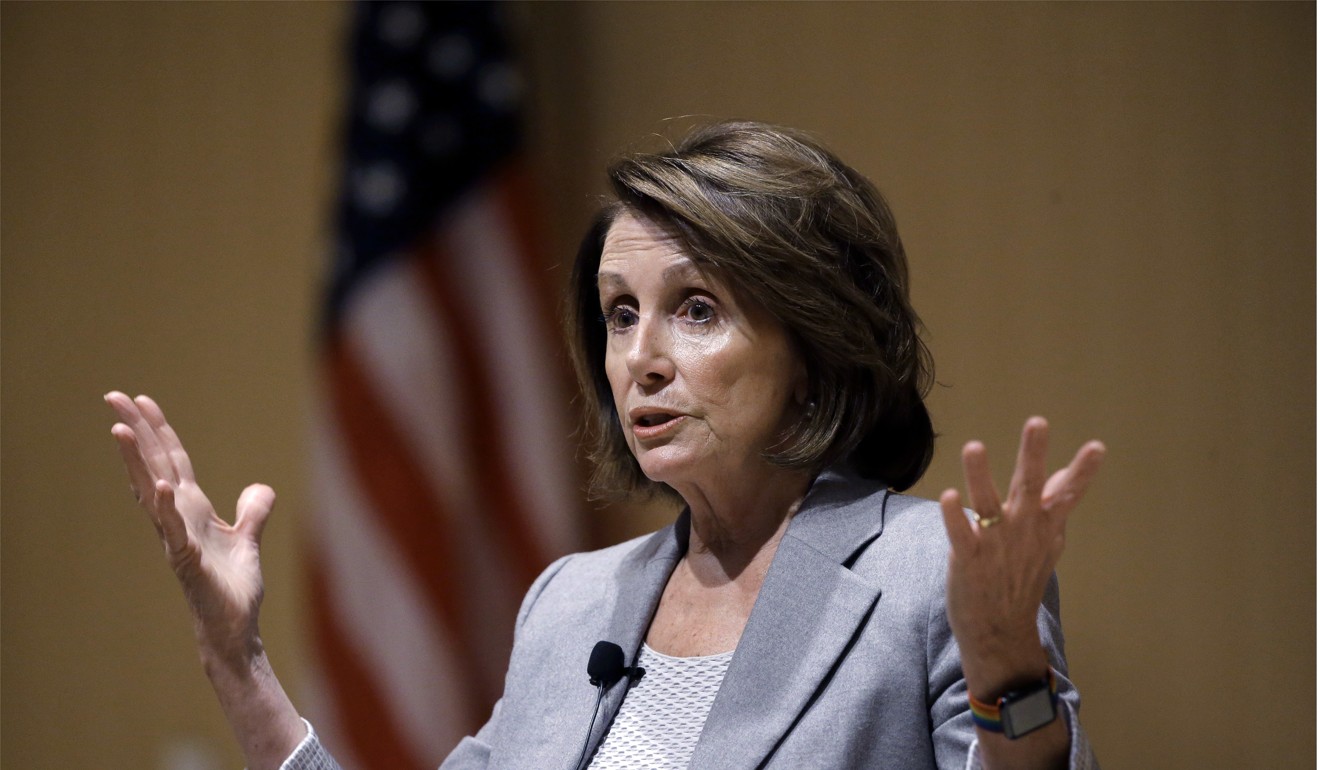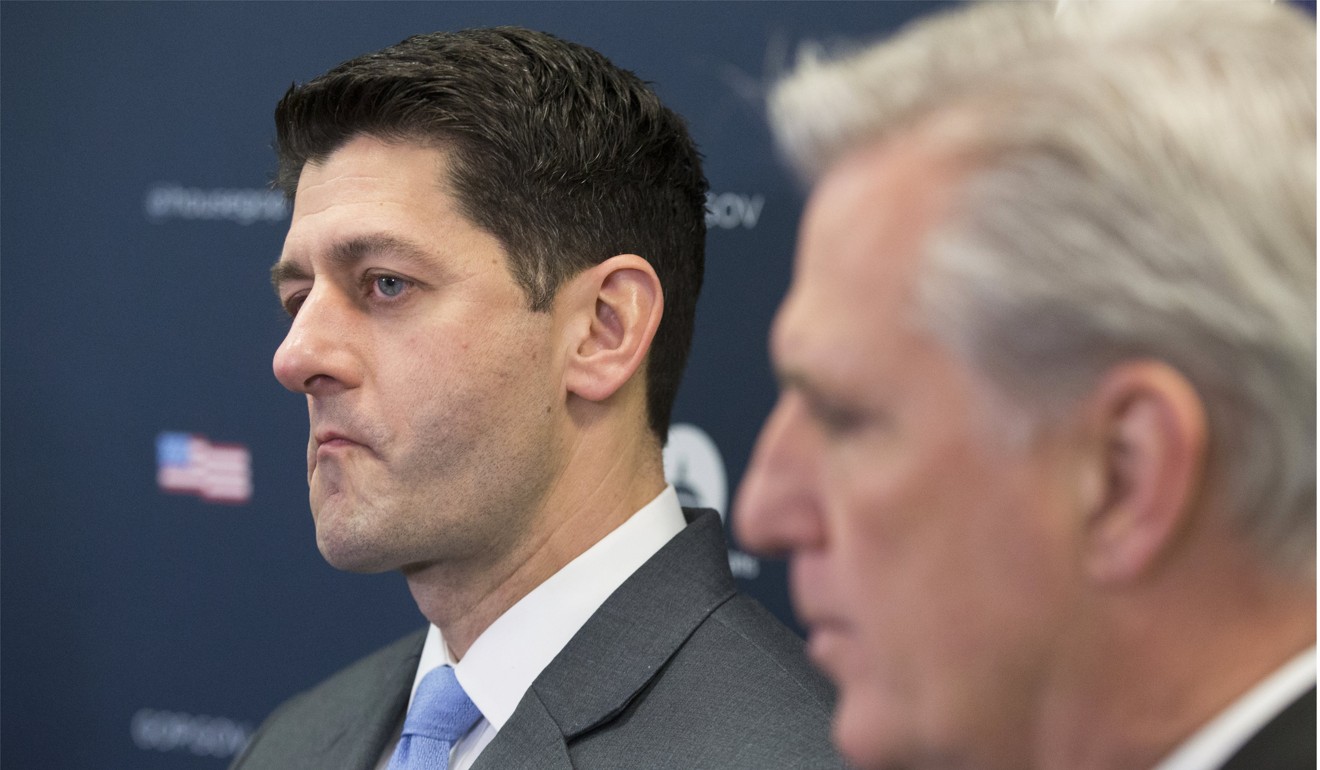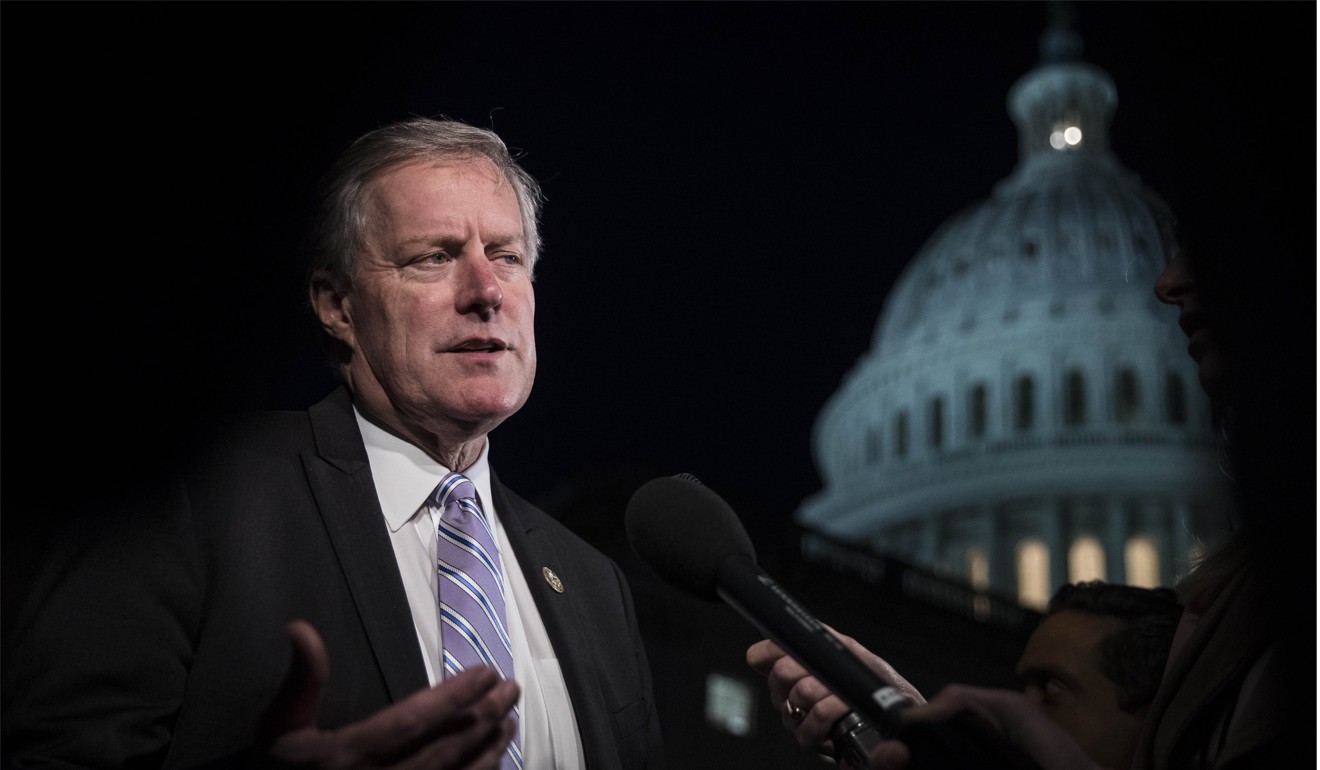
Bipartisan deal to avoid US government shutdown announced – but will it pass?
Both Republicans and Democrats have composed the bill, but demands for immigration debate could stop its passage before funding runs out tonight
A bipartisan measure to avoid the impending US government shutdown was announced on Wednesday – but questions remain about whether it will pass.
Senate Majority Leader Mitch McConnell announced the two-year budget agreement, which will provide nearly US$300 billion more for defence and non-defence spending, ending a months-long impasse on spending priorities.
But House Minority Leader Nancy Pelosi said she and many fellow Democrats will oppose the deal unless Republicans allow the chamber to vote on legislation protecting immigrants.

The proposed plan would suspend the federal debt ceiling and provide hurricane and wildfire disaster aid, according to a Republican summary of the deal.
It would increase defence spending by US$80 billion over current law in this financial year and US$85 billion in the one that begins October 1, according to a congressional official familiar with the plan.
Non-defense spending would rise by US$63 billion this year and US$68 billion next year. The bill would also provide a short-term measure to keep the government operating until March 23, as current funding runs out at the end of the day on Thursday.
“I am all in for the proposal that was explained to me,” Republican Senator Lindsey Graham of South Carolina said as he came out of McConnell’s office.
But Pelosi, who was part of the negotiations on the agreement, has warned that the deal is a no-go without a commitment from Speaker Paul Ryan to allow an open debate on immigration legislation.
“Why can’t we have some kind of commitment on this side of the aisle?” Pelosi said on the House floor on Wednesday.
Without that, “this package does not have my support nor does it have the support of large numbers of members of our caucus,” she said.

Votes from Democrats – possibly as many as 100 – would be needed to get the budget agreement passed in the House, because many Republicans are balking at the cost.
Representative Luis Gutierrez, an Illinois Democrat, said a budget deal without protection for the young immigrants protected under the soon-to-end Deferred Action for Childhood Arrivals (DACA) programme is unacceptable.
“That would be a complete betrayal,” he told reporters, adding that “a lot” of Democrats would feel the same.
But Senate Democrat leader Chuck Schumer called the bill “the best thing we’ve done” for the middle class and the economy.
“We have reached the budget deal that neither side loves but both sides can be proud of,” he said.
Meanwhile, opposition from the deal has emerged on the Republican side from the so-called Freedom Caucus, which is opposed to increasing spending.
Republican Representative Mark Meadows said his Freedom Caucus will fight it, but “I’m afraid the numbers will get so high and the debt ceiling will get added and it will be a Christmas tree of spending – that a lot of votes will be bought.”
Meadows told MSNBC Wednesday that a bipartisan deal will draw “120 or 140 Democrats and maybe about the same on Republicans sending this to the president’s desk.”

The Freedom Caucus includes roughly three dozen Republican conservatives opposed to spending that balloons the federal deficit.
At the White House, President Donald Trump appeared to hold out the possibility of a shutdown if lawmakers don’t come up with a deal on immigration. Trump said on Tuesday he’d “love to see a shutdown if we can’t get this stuff taken care of.”
The higher spending from the deal would add to an expanding federal budget deficit that Steve Bell, a former Senate Budget Committee staff director, forecast would reach as much as $1 trillion next year.
The Republican summary didn’t specify how long the debt limit would be suspended. The deal would extend the Children’s Health Insurance Program for 10 years, four more than the extension Congress just enacted.
According to the congressional official familiar with the agreement, the plan includes US$20 billion for infrastructure over two years, including roads and drinking water.
There’s also US$6 billion to combat opioid abuse and improving mental health, and US$2 billion for research at the National Institutes of Health.

